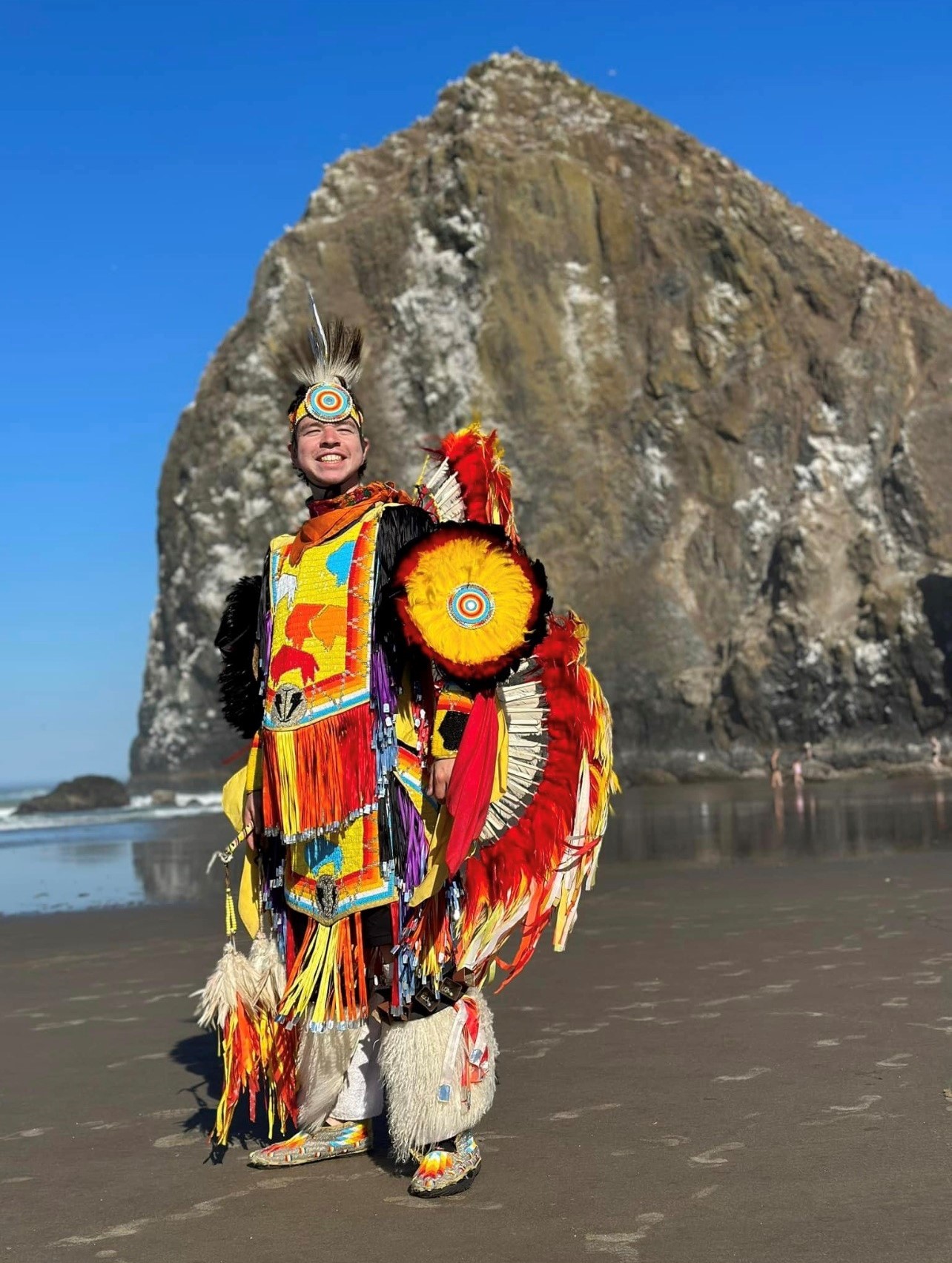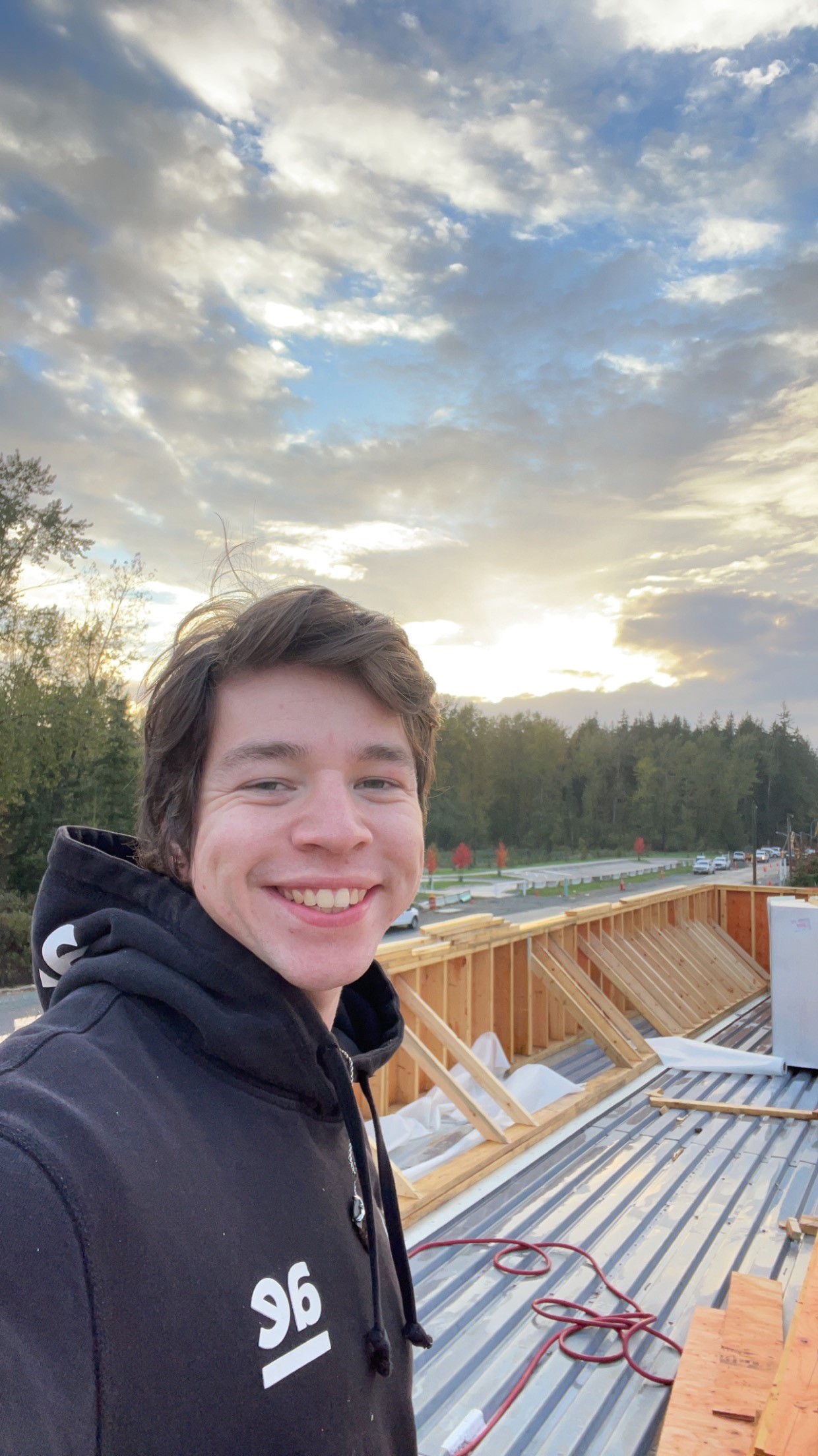
24-year-old Sebastian Abbot describes himself as usually “shy" and “introverted" but anyone who has seen him perform the hoop dance live or on APTN or the 2010 Vancouver Winter Olympics, those two words are far removed from the high-paced energy he projects.
“Once you're in regalia, you're ready to do culture and it comes naturally to you," Sebastian said describing how performing takes him to a different place mentally. “Like when I have to do a report or something, I can't do it, but when it comes to culture I'm a totally different person."
He describes that transformation as not only coming from within himself but also with help from those who came before.
“As soon as I put that regalia on, it's like I know my ancestors have my back and they want me to succeed, they're like, 'Don't worry young man, you'll do great things.'"
Sebastian is from the Siska Indian Band and his traditional name is ?e stpíq te skelúle?, which means “White Owl" in English. He grew up in Chilliwack but currently lives in Merritt. His childhood was surrounded by culture and tradition for which he thanks his father Gary Abbott and his grandparents Steven and Gwen Point.
Immersion was how Sebastian learned culture and tradition. He was raised by stories and storytelling, it was an oral education that passed down wisdom and learnings from his ancestors. It was also a learning by doing.
“You grew up surrounded by culture so you just become immersed in it by living it," said Sebastian describing his exposure to culture and tradition. “Sometimes I'd be dropped off at an event by my family and they'd say we're doing this today or sometimes they'd be like, it's a surprise until we get there."
That immersion began at a young age for Sebastian, who began hoop dancing when he was only two years old. He said he learned the storytelling dance style from his father and it's a dance that's traditionally passed down from father to son.

For Sebastian, it's the continuation and passing down of traditions that drives him. He said he's always open and willing to teach the younger generation not only the hoop dance but also the fancy dance, with the hope that one day they'll become more accomplished and skilled than him.
“I love seeing people go to dancers and asking, 'Hey I'm willing to learn, I'm willing to do whatever it takes. Can you please teach me how to dance?'"
Seeing the dedication of the young ones motivates Sebastian to be a good teacher and leave his lasting legacy to those who will take their place in the unbroken tradition of dancers.
“The young ones ask us how they can improve themselves to get just as good or better. I always tell them you want to get better than me, that's your number one goal," said Sebastian. “So I always tell them, I will always share my training information with them and I tell them this is what I do."
Jokingly, he said one thing he can thank the “colonizers" for are baby jumpers.
“Now we have newborns out there in jumpers and they're just jumping, just jumping to the drumbeat and everything and that's what I love, that's another reason why I look forward to powwows," he said. “I have really bad baby fever but thank God I have a lot of powwow kids who call me uncle or even 'dad.'"
Inspiring the young ones to push a little harder and to do a little better is what he sees as progress. Following his ancestors who inspired him to dance, he hopes to inspire youngsters who may be too shy to take the first step.
“I throw my hoops and say, 'All right, everyone grab a hoop and come on, walk, just walk with me for one lap then you can sit down but they never do and stay on the dance floor.'"

